Time reading skills Extra Challenge Math Worksheets for Ages 3-9
5 filtered results
-
From - To
Enhance your child's time-telling abilities with our "Time Reading Skills Extra Challenge Math Worksheets" designed for ages 3-9. Perfectly tailored to support early learners, these worksheets make learning to read clocks fun and engaging. They include a variety of activities to practice reading analog and digital clocks, identifying time to the hour, half-hour, quarter-hour, and more. Utilizing vibrant graphics and interactive tasks, these worksheets help to steadily increase your child's confidence and accuracy in telling time. Give your child the head start they need in mastering this essential math skill with our expertly crafted challenges!
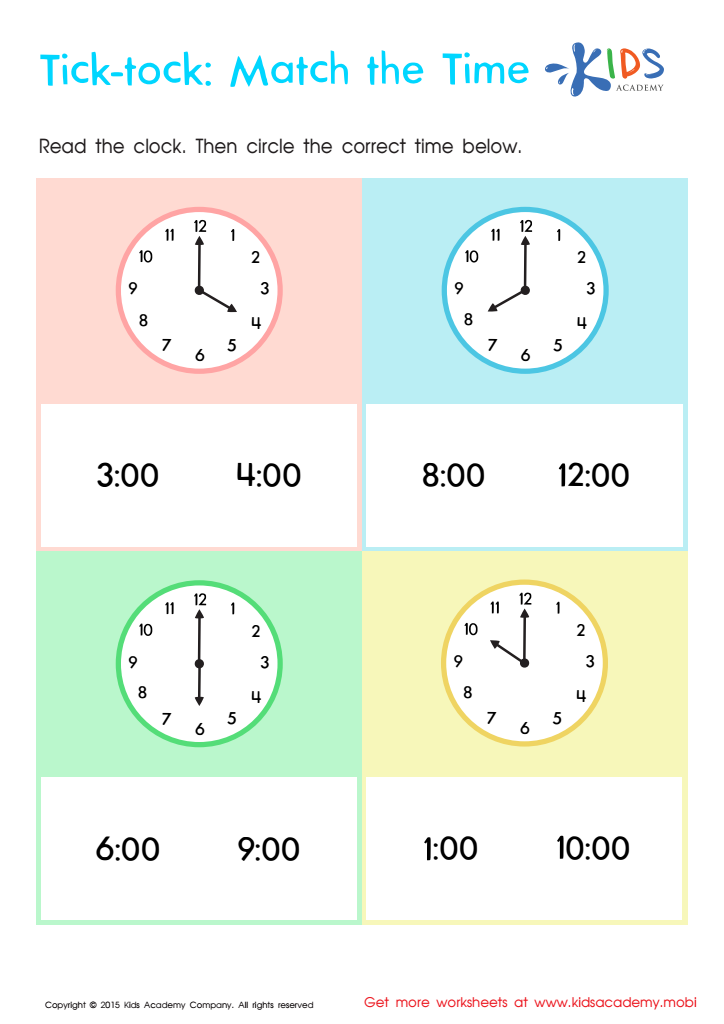

Telling The Time Worksheet: Part 4
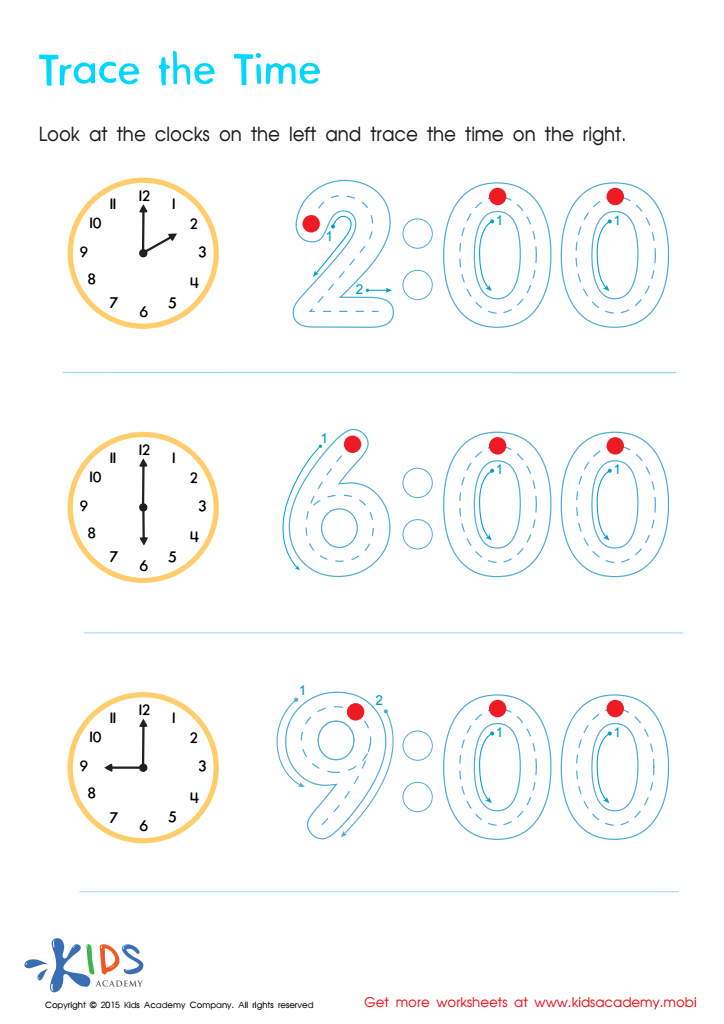

Telling The Time Worksheet: Part 2
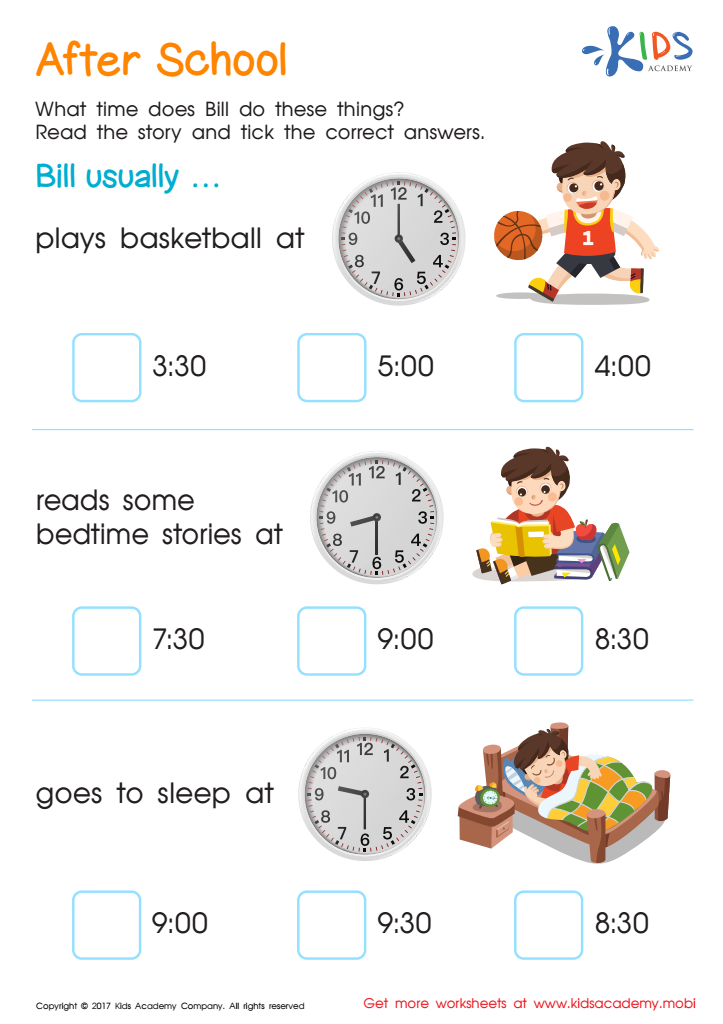

After School Time Printable
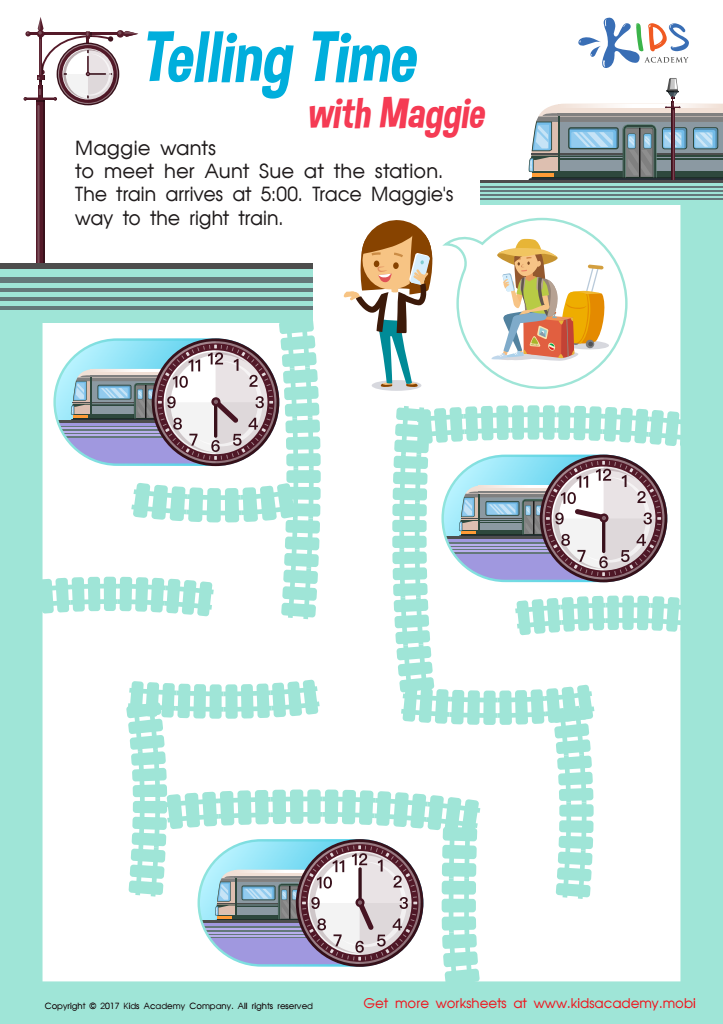

Telling Time With Maggie Time Worksheet
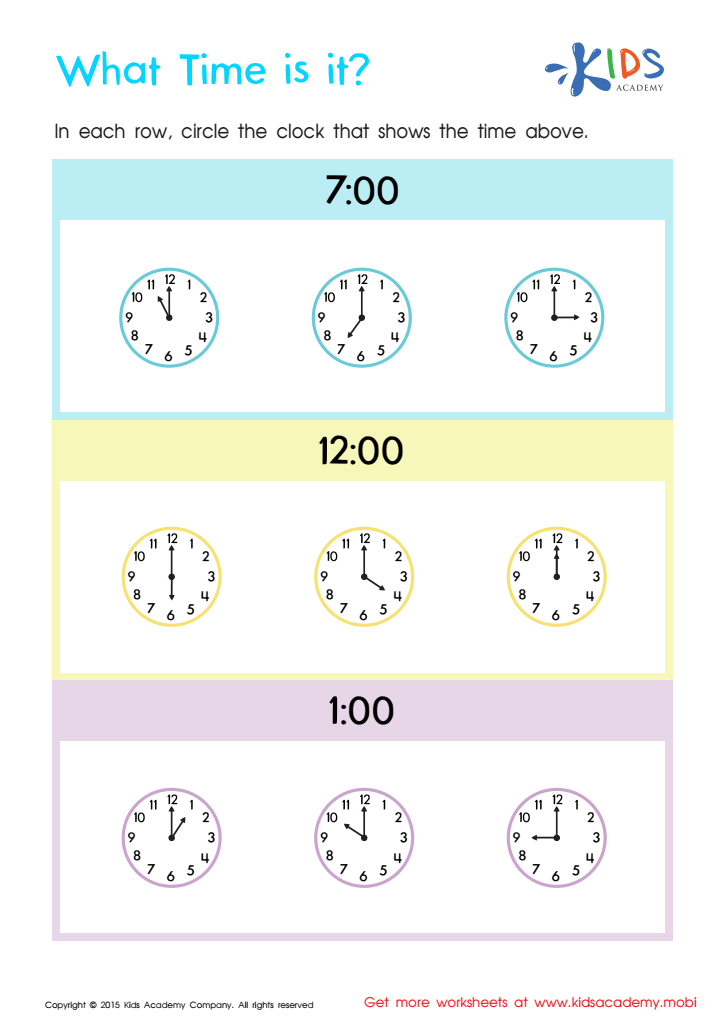

Telling The Time Worksheet: Part 3
Parents and teachers should support Time reading skills and Extra Challenge Math for children aged 3-9 because early mastery of these skills lays a crucial foundation for future academic success. Time reading skills are essential for helping children understand daily schedules, the concept of elapsed time, and the ability to organize their day effectively. This capability fosters a sense of responsibility and enhances cognitive abilities like sequencing and time management.
Extra Challenge Math activities stretch children's problem-solving skills and critical thinking abilities. They spark an interest in subjects like geometry, measurement, and arithmetic through engaging, age-appropriate tasks that make learning fun. These challenges also build resilience as children learn to tackle difficult problems and think creatively.
Introducing these concepts early ensures that children are better prepared for more complex subjects later in their educational journey. It supports a positive attitude towards learning, breeds curiosity, and minimizes anxiety about math and time-related tasks. For parents, involvement in these activities offers valuable bonding time and insights into their child's cognitive development. For teachers, it allows for the identification of strengths and areas needing improvement, guiding tailored instruction. Holistically, these skills are key for everyday functionality and overall intellectual growth, making them indispensable for young children.
 Assign to My Students
Assign to My Students
















